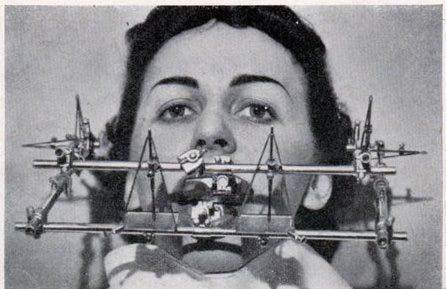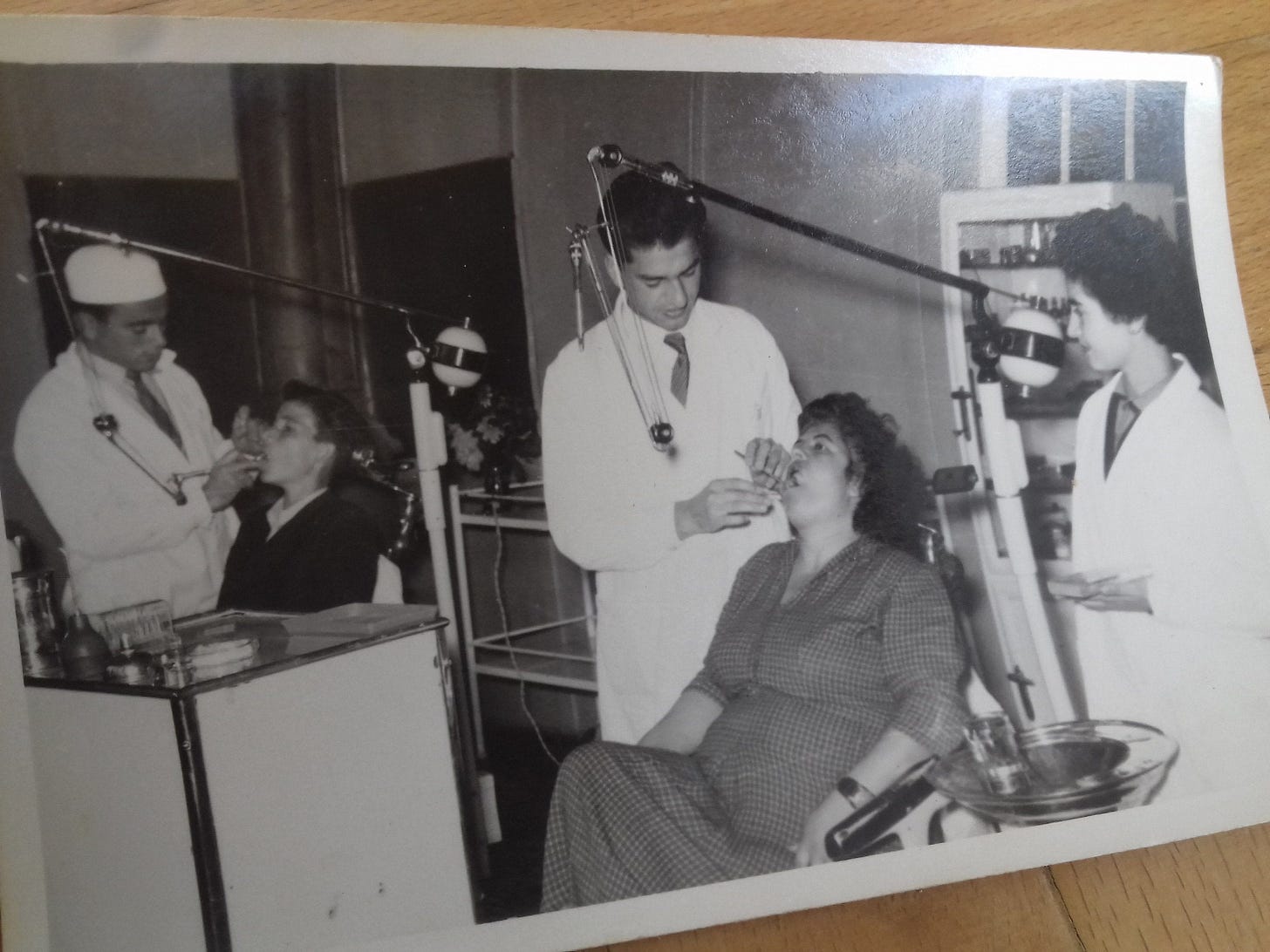"The past is a foreign country; they do things differently there." L.P. Hartley
Once, it was the custom to pull out the bride’s teeth as a wedding gift. While you might imagine this a custom of some savage tribe in a faraway land, it was a common practice in rural areas of the Netherlands in the 1940s and ‘50s. Men were also subjected to this practice but I have the impression it was more often a woman’s fate. It was a way to avoid the expenses of going to the dentist, which can add up over a lifetime. Often in one or two sessions, young women would have their teeth extracted and then get dentures.
The first time I learned about this attitude towards dental care, so foreign and barbaric to us today, was while reading the book "Magdalena". In the book, Maarten ‘t Hart recounts how his parents believed it was best to let teeth decay as quickly as possible and have them removed to get dentures. When he was 13, a teacher told him you should brush his teeth twice a day. This was a novel idea to him. With the money he had earned picking tomatoes, he bought a toothbrush and went home to brush his teeth for the first time in his young life. When his father found out, he shouted:” Are you bonkers? A toothbrush? “ and broke it into three pieces.
As an experiment, I tried to break my toothbrush into three pieces myself and failed, but his father was a gravedigger and thus strong enough for such a feat. The downside of being a gravedigger, though, were poor wages. The family couldn’t afford to have his mother’s teeth removed, and had to save up money from their meager income. When finally they had saved enough, his mother got her wish: she paid the dentist a visit, and all her teeth were pulled out. The pain was excruciating. She had to stay in bed for two weeks, unable to get up and go to the toilet. The dentures were painful to wear, and her mouth continued to ache for the rest of her life.
Then a friend told me his mother had her teeth pulled out before she was 20 and then got dentures. She lived to be 82, thus living more than 60 years without the comfort of her own teeth. Still, she said she didn’t have any hard feelings about it.
Divining a pattern, I asked dentists about it, and they confirmed such extractions were business as usual back then.
The past is a foreign country…






That often used to happen in the UK as well, until the early 20th century. Savings on dental costs were the publicly acknowledged reason, when fewer people regularly brushed their teeth and they tended to put more sugar in their tea and coffee, so their teeth may have decayed faster.
But I suspect there was another reason not publicly discussed. Women tended to have more children back then and, with higher infant mortality rates, many would have been pregnant more of the time, perhaps almost non-stop. A mouth without teeth is easier to use for oral sex, which women could substitute for their husbands' conjugal rights while pregnant, or if they or both wished to defer or avoid the wife being pregnant again!
This is common today among the Amish who live just a few miles from me.